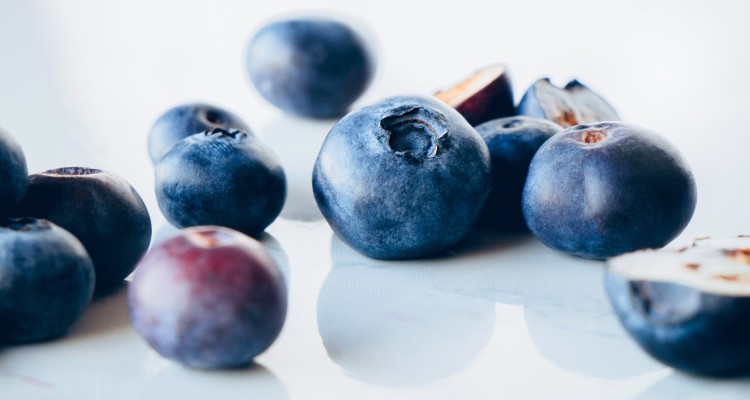
It's a sad fact: The average American today gets more than half of their daily calories from junk food.
These ultra-processed foods are high in calories, salt, empty carbohydrates, sugar, and bad fats, and low in everything else, like fiber, needed for proper nutrition.
The impact of all that junk food on your waistline is evident. What's less visible but just as severe is the impact of all that junk food on your brain. Poor nutrition ages your brain and opens the door to age-related cognitive decline. The damage starts long before the first symptoms appear. A diet high in junk food causes oxidative stress and inflammation throughout the body, including the brain. A diet high in junk food shifts your gut microbiome in an unhealthy direction, triggering aging processes that damage the brain and may lead to neurodegeneration.

Fortunately, the accelerated brain aging caused by a poor diet can be reversed, at least in part, by ditching the junk food in favor of a Mediterranean-style diet. This is a dietary approach that numerous studies show is neuroprotective—it's associated with a lower risk of mild cognitive impairment.
The neuroprotective foods of the Mediterranean diet include fish and other foods rich in omega-3 fatty acids, a range of colorful plant foods, and whole grains. What's not included? Red meat, cheese, fried foods, highly processed foods, and sugar.
Let's take a closer look at the best foods for revitalizing your brain and see why they're so valuable.
Foods to Reverse Brain Aging
Of all the foods that help reverse brain aging, those high in omega-3 fatty acids top the list. Why? Because Omega-3s are crucial for building and maintaining your body's cell membranes, including the membranes that protect the 80 billion neurons in your brain.* When neuron membranes are strong and flexible, the neurons connect and communicate efficiently. They form and retain memories easily, keep you on an even emotional keel, and maintain your cognitive function.
Cold-water oily fish is the best source of omega-3 fatty acids. Aim for at least four servings a week of SMASH fish: salmon, mackerel, anchovies, sardines, herring. Despite the clear benefits of eating fish, some people hate it and won't eat it. Others are allergic or have some other objection. And for many, it's just hard to manage that many fish servings a week consistently.
To be sure you're getting enough omega-3 fatty acids, consider a daily fish oil supplement. The Brain Benefits liquid formula is an excellent source of the omega-3 fatty acids docosahexaenoic acid (DHA) and eicosapentaenoic acid (EPA), the two essential fats that are primary structural components of brain cells. Both are key to maintaining the integrity of neuron membranes.*
DHA and EPA are also crucial for supporting the structure and function of the microglia cells—the brain's clean-up crew.* These cells remove debris, including the amyloid proteins related to Alzheimer's disease, from the brain. Keeping these cells functioning well is essential for avoiding cognitive decline.
After adding fish to your diet, the next important food group is fruits and vegetables—the more colorful, the better (think pomegranate and beets). These foods are crammed with antioxidants, flavonoids, vitamins, good fats, fiber, and other nutrients that all contribute to brain health. Choose from the wide range of healthful plant foods by starting with the superfoods—the ones that are the richest invaluable brain benefits. Start with berries (especially blueberries), nuts such as walnuts and almonds, broccoli and leafy green vegetables, avocados, whole grains, beans, and olive oil and coconut oil. Instead of soda, switch to pure water, coffee, green tea, herbal teas, and small amounts of unsweetened fruit juice. And for dessert, enjoy fresh fruit or a few squares of high-quality dark chocolate.
Ideally, you'll aim for five to seven or more servings a day of those plant foods. Realistically, your tastes and your busy schedule mean you're probably not going to achieve that many servings, with that level of variety, every day. Especially if you're over 65, you want to be sure you're countering oxidative stress every day, even when you can't do it through your diet.
That's the value of Amyloid Benefits ™. This supplement is designed to help reduce the formation of damaging amyloid plaques and tau tangles in the brain, protein clumps that are the hallmark of age-related cognitive decline.* Colostrum is a key ingredient in the Amyloid Benefits ™ formula. Colostrum is an excellent source of proline-rich peptide (PRP) complexes, which help with inflammation in the brain.* The formula also contains curcumin, ashwagandha, pomegranate extract, and palm fruit bioactive complex (PFBC). All help raise antioxidant levels in the brain and slow plaque formation.*
MegaProbiotic ND 50 is another daily supplement valuable for supporting the aging brain.* This supplement contains probiotics, supplements of beneficial bacteria that help restore the right balance in the gut microbiome.* Your gut and brain are tightly linked through the gut-brain axis. When the gut is imbalanced, the impact reaches the brain through bacteria byproducts and inflammatory cytokines—molecules that damage the brain and contribute to neurodegeneration and cognitive decline.
A daily dose of MegaProbioitic ND 50 helps make sure your gut bacteria are contributing to your brain health, not worsening it.* The supplement contains nine bacterial strains chosen for their value in restoring better gut balance and inflammation.* The strains include several known to help improve brain function. Lactobacillus Plantarum has been shown to promote the functionality of the gut-brain axis, for example, while Bifidobacterium longum helps promote good mental health.
Keep Moving
Research shows that a brain-healthy diet contributes actively to supporting brain health in the face of age-related cognitive decline.* Research also shows that daily physical activity can reduce your risk as well. Exercise stimulates your brain and helps it maintain old connections among the neurons and make new ones. This helps guard against cognitive decline and even slows memory loss for those already showing signs of mental deterioration. The benefits come from getting at least 150 minutes of moderate-intensity exercise each week—that's less than 30 minutes a day to protect your brain against the devastation of neurodegenerative disease. Aim for the right combination of cardio and strength training.
Eat right, exercise right, supplement right—and keep your brain right
Dr. Rob Silverman












.jpg)






